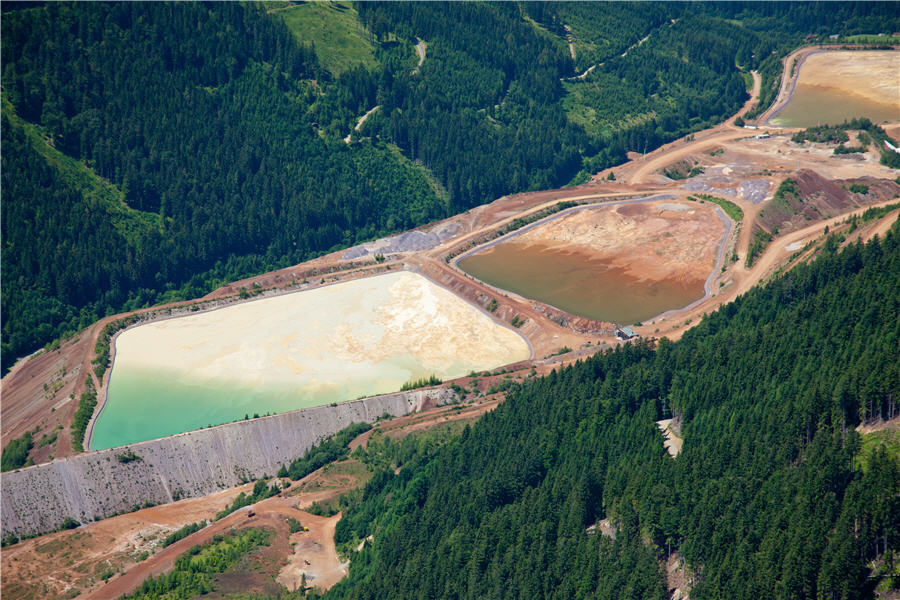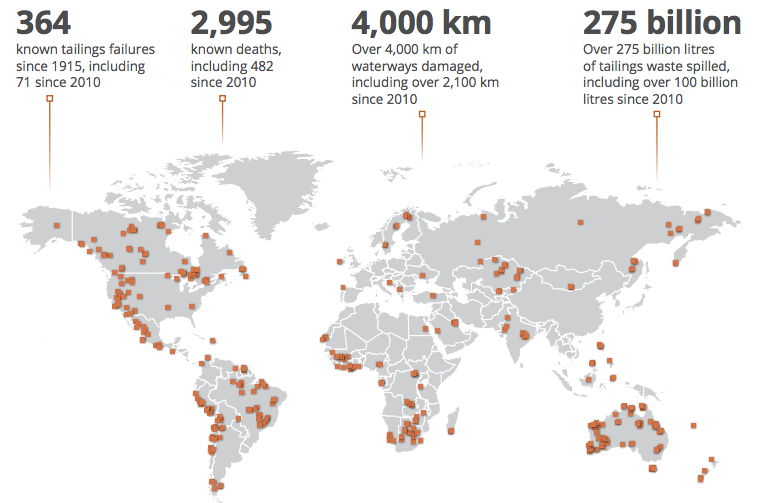
An international group of 142 scientists, community groups and NGOs from 24 countries has published a set of 16 guidelines for the safer storage of mine waste.
The guidelines aim to protect communities, workers and the environment from the risks posed by thousands of mine waste storage facilities, which are failing more frequently and with more severe outcomes.
“Safety First: Guidelines for Responsible Mine Tailings Management” argues that the ultimate goal of tailings management must be zero harm to people and the environment and zero tolerance for human fatalities.
The group publishing the report includes frontline organizations in mining affected communities from Brazil, Tanzania, Papua New Guinea, India and elsewhere as well as global groups such as Amnesty International Canada, Earthworks, IndustriALL Global Union Federation, MiningWatch Canada, the Natural Resources Defense Council, The Movement of People Affected by Dams (MAB) and the Sierra Club.
GUIDELINES INCLUDE THAT INTERNATIONAL SAFETY PROTOCOLS MUST BE INDEPENDENT OF COMPANY CONTROL, AND MUST BE ESTABLISHED THROUGH MULTI-STAKEHOLDER PROCESSES
Last year, a tragic dam collapse in Brazil killed 270 people and destroyed the town of Brumadinho, and came on the heels of tailings dam failures at the Mount Polley mine in Canada and the Samarco mine in Brazil, among others.
The guidelines come as the Global Tailings Review, co-convened by the international mining industry association, ICMM, investors and the UN Environment Programme, prepares to unveil the first Global Tailings Standard “for the safer management of tailings storage facilities.”
Current industry standards, including the draft of the Global Tailings Standard released in 2019, do not adequately protect communities and ecosystems from failures, the report finds.
The trend in tailings dam tragedies are a consequence of allowing mining companies to sacrifice safety to cut costs, control auditors and silence dissent among workers, the report revealed.

The report asserts that tailings storage facilities must be built and managed only with community consent, respecting human rights and the rights of Indigenous Peoples, adopting the best available technologies and practices.
Guidelines include that international safety protocols must be independent of company control, and must be established through multi-stakeholder processes that actively engage workers, communities and civil society.
Strong standards for tailings dams must ensure financial guarantees and accountability at the highest level of corporate governance, the report maintains.
Public participation in decisions and reliable whistleblower and grievance mechanisms are necessary to ensure that communities and workers can raise the alarm without consequences, the report finds.
“We need independent guidelines on tailings safety,” says Carolina de Moura of Associação Comunitária da Jangada, Brumadinho, Brazil. “We urgently need guidelines and regulations to manage toxic mine waste dams. We hope that the case of Brumadinho becomes a milestone and an inflection point for mining across the world.”
“Governments and international institutions need to move urgently to implement these 16 guidelines to end mine waste failures worldwide. Industry self-regulation will not provide adequate protection. There must be a strong global response to this global problem, putting safety first,” says Ugo Lapointe, MiningWatch Canada, Canada.